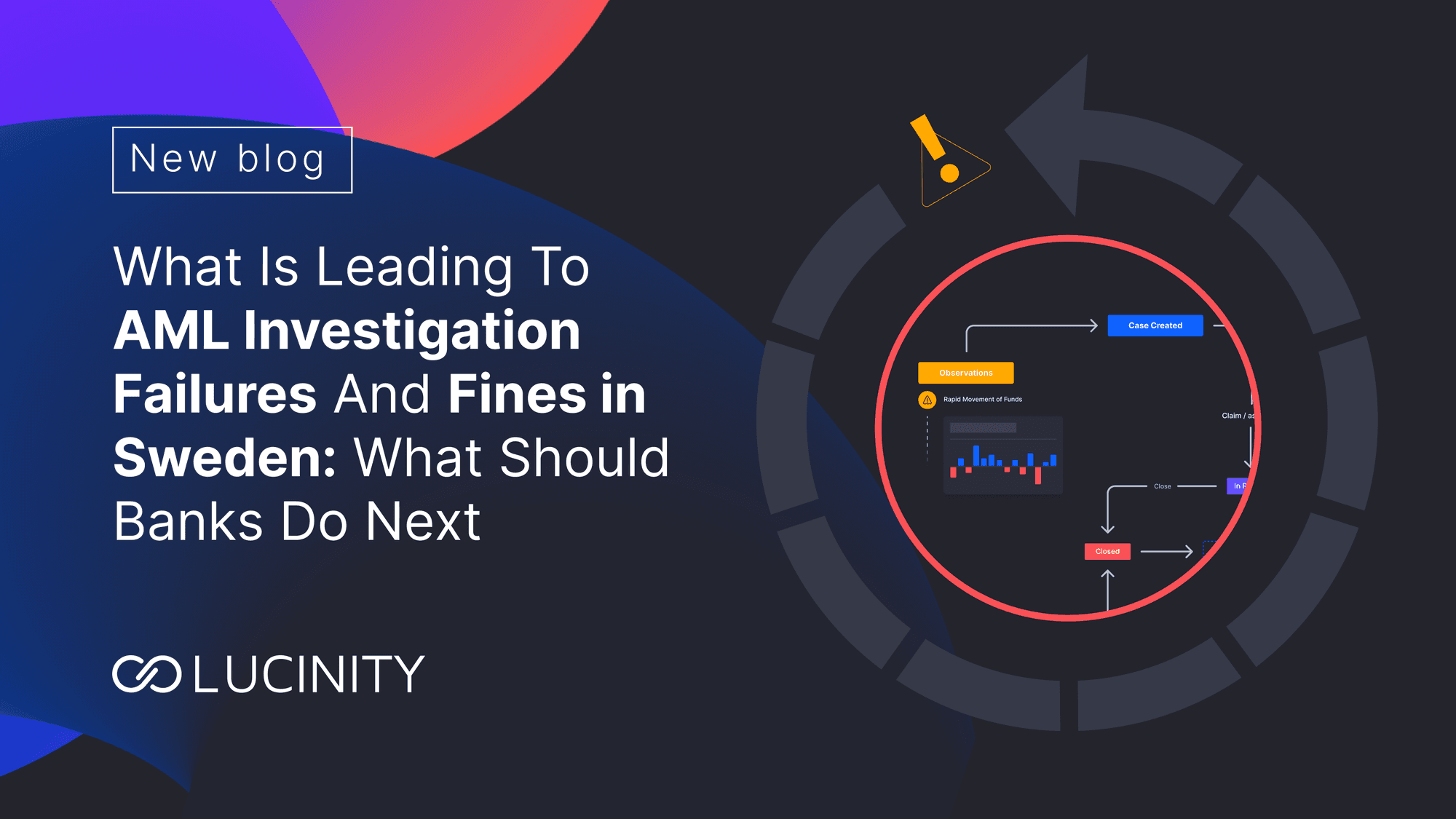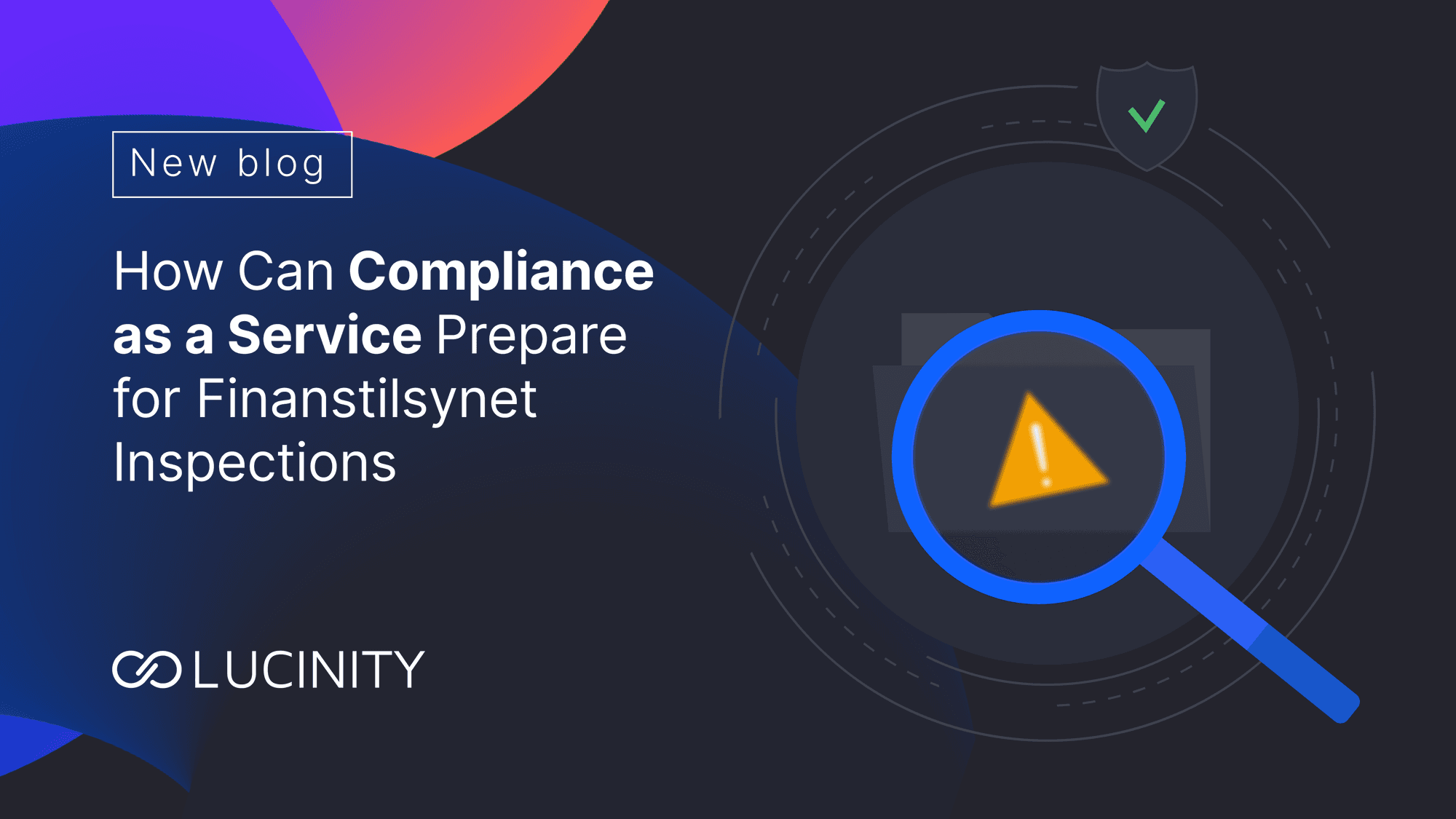How do you keep your crypto business compliant without sacrificing speed and innovation?
Buying a regular AML compliance solution for your crypto business upsets the balance of power between your UVP and the expectations of the AML vendor.
Crypto businesses are in a tough spot. Granted, innovation is never easy. However, companies building their business on the blockchain (figuratively or not) are in the eye of a perfect storm.
Lucinity's Jon Heiðar gathered some key challenges for crypto businesses earlier, and his observations still stand. If anything, they become more and more topical as the legitimacy of the blockchain grows and traditional market factors step in.
In this post, I thought I'd focus on three aspects of the same challenge: making a crypto business sustainable from an AML compliance toolset standpoint.
Challenge 1: crypto is not fiat (but humans will always be humans)
Crypto companies are forced to pull in opposite directions: what their business wants to do and what they need to do to fit into the compliance frameworks.
Buying a regular AML compliance solution for your crypto business upsets the balance of power between your UVP and the expectations of the AML vendor. Many AML solutions are built for regulatory frameworks that are only beginning to adjust to reflect the new reality of financial behavior.
Crypto businesses need a flexible, behavior-based AML compliance solution that can account for not the nature of money but the nature of humans using it.

Challenge 2: the AML compliance bottleneck (and how to avoid it)
Many crypto businesses dread AML compliance because of its hunger for resources. AML vendors have been upholding the status quo of poor productivity that caused the infamous runaway labor resource costs in compliance teams.
Just as blockchain is a young technology, so are blockchain businesses young companies. A new business needs sensible, sustainable growth in many aspects of building products, services, and business operations. Heavy compliance overhead eats up investments and stifles early revenues. And even if the company gets through those hits, it'll still act as a significant bottleneck for growth.
Crypto companies require an AML solution that enables the same productivity and efficiency as they deploy for all other aspects of the business.

Challenge 3: scaling your crypto company (sustainably)
While the media frenzy around blockchain may paint a deceptive picture, crypto companies struggle with the same challenges as any other startup or scale-up. Scaling a crypto company requires the same care and attention.
Just as the AML industry became static and complacent, AML solutions became rigid and inflexible. This creates problems for blockchain businesses that can't match vendor offerings to their rate of growth dynamically. A solution that's not enough hamstrings the business, while an oversized one creates a cost drag that can derail the company's future.
Crypto companies demand modern, efficient solutions that scale with them.

How do you keep your crypto business compliant for the long term?
AML compliance is turning from inflexible, rule-based, on-premise solutions to agile, behavior-based, cloud software. As one of the chief innovators, Lucinity's SaaS AML platform unlocks desperately needed productivity for compliance teams and replaces tedious, unscalable manual labor on isolated data silos with highly efficient, sustainable automatic data processing across all financial activity.
Crypto companies will find Lucinity's solution to solving AML compliance in a way that makes sense for their unique business needs. It offers end-to-end AML compliance with significantly reduced overhead, unlocks compliance from the start while avoiding possible future bottlenecks, and scales in sync with their growth.
Schedule a demo with our experts, either in North America or in the rest of the world, who can showcase Lucinity's advantages for crypto businesses.






